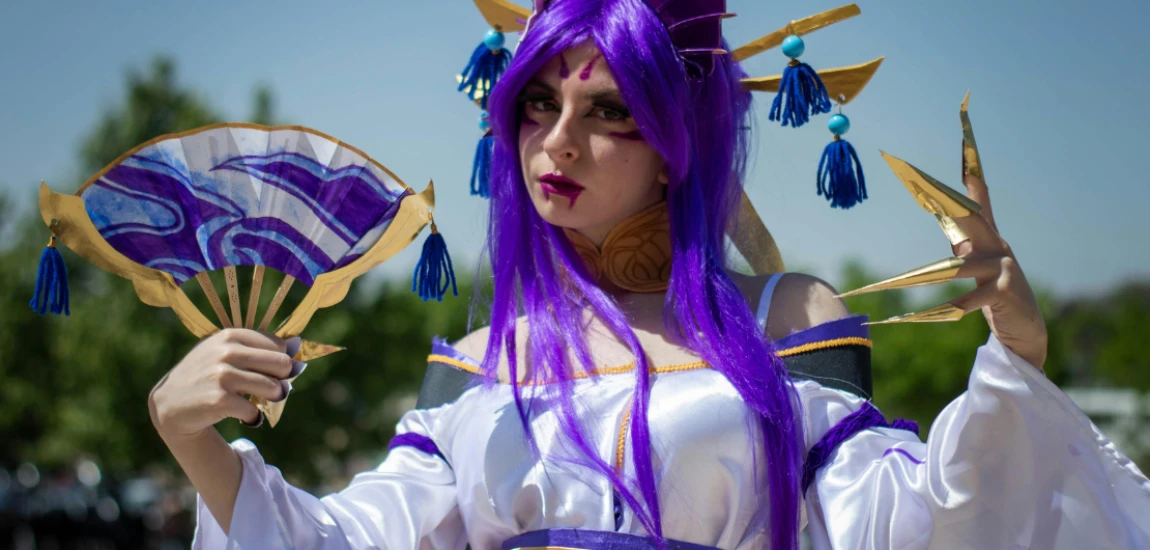Fanfiction Futures: When Fandom Becomes Canon

Fanfiction was once hidden in the shadows of the internet—shared in niche forums, fan sites, and private LiveJournal entries. Today, it has stepped into the cultural spotlight. Once dismissed as amateur writing or even copyright infringement, fanfiction is now recognized as a form of participatory culture, a space where fans don’t just consume stories but expand, remix, and reshape them.
This transformation is deeply tied to how storytelling itself has evolved in the digital age. Writers are no longer confined to publishing houses or academic gatekeepers. Instead, platforms like Wattpad, Archive of Our Own (AO3), and even TikTok fan communities have created ecosystems where readers and writers meet in real time. The boundaries between “canon” and “fanon” are blurring, leading to what many are calling fanfiction futures—a new era where fans have real influence over the direction of mainstream narratives.
The significance of fanfiction isn’t just in its creativity; it’s in how it empowers communities. Fan writers create alternative universes, explore underrepresented identities, and fix “plot holes” left behind by official works. By doing so, they highlight what audiences crave but often don’t receive from traditional media: diversity, inclusivity, and imaginative expansion. The rise of fandom-driven storytelling signals not just a shift in entertainment but a redefinition of who gets to tell stories—and for whom.
Fanfiction as a cultural mirror
Fanfiction reflects what mainstream storytelling sometimes avoids. It surfaces desires, frustrations, and dreams, giving voice to marginalized perspectives.
Why now?
The digital ecosystem of social media, streaming platforms, and fan forums has supercharged the reach and legitimacy of fanfiction, making it impossible to ignore.
From Margins to Mainstream: Fanfiction’s Cultural Legitimacy

Fanfiction has always existed in some form—think of early retellings of myths, Shakespeare adaptations, or even Sherlock Holmes pastiches. What has changed is how it is perceived. Once seen as a niche, even embarrassing hobby, it is now an undeniable cultural force. Shows, books, and movies are not only aware of fanfiction—they are responding to it.
The shift started with communities like Fanfiction.net and AO3, where amateur writers built expansive worlds around existing works. These platforms normalized fan-created narratives, and over time, many professional authors acknowledged their origins in fandom spaces. Take E.L. James, whose Fifty Shades of Grey famously began as Twilight fanfiction, or Anna Todd, who adapted her One Direction fanfiction into the wildly popular After series.
Fanfiction’s mainstreaming also owes much to its sheer scale. AO3 alone hosts millions of works across thousands of fandoms, showcasing the hunger readers have for expanded universes. The popularity of these stories often rivals traditional media, challenging the monopoly of publishers and Hollywood.
Media industries take notice
Studios now pay attention to fandom. When writers’ rooms see trends in fan communities—like preferred pairings or character arcs—they sometimes adapt canon to meet audience demand.
Shifting stigmas
Fanfiction has moved from being derided to being studied in academic circles. Universities now analyze fandom as a lens into media studies, gender theory, and participatory culture.
When Fandom Becomes Canon: Case Studies and Examples

The phrase “fanfiction futures” becomes most tangible when fandom directly influences canon. Consider the Star Wars franchise: after widespread fan backlash against the treatment of characters like Rose Tico, studios adjusted narrative strategies. Similarly, Marvel has incorporated fan-favorite dynamics into official storylines, acknowledging the power of collective fan desire.
In television, Supernatural often toyed with fan theories, at times bending plots to nod toward fandom expectations. Likewise, Game of Thrones fan forums sparked endless debates—so influential that even the showrunners occasionally teased theories that originated with fans.
On the publishing side, Wattpad has birthed countless success stories, where once “unofficial” fan-inspired works have become published novels, Netflix films, or even TV shows. What once lived in fan forums now drives billion-dollar franchises.
Power of shipping
Fan pairings (or “ships”) often generate so much momentum online that creators must acknowledge them. While not every ship becomes canon, their existence reshapes character development and audience engagement.
Fanfiction to franchise
Some stories inspired by fandom now become their own independent canons, creating spin-off media empires that owe their existence to community writing.
The Psychology of Fanfiction: Why We Crave Expanded Universes

Why does fanfiction resonate so strongly? The answer lies in psychology. Fans engage with fiction not just as passive consumers but as active participants in meaning-making. Fanfiction provides a sense of ownership over beloved stories, allowing readers to fill emotional or narrative gaps.
For many, writing or reading fanfiction is also a form of identity exploration. Fans can test out alternative relationships, gender expressions, or cultural contexts through fictional characters. This fluidity explains why fanfiction communities are often havens for LGBTQ+ representation, which mainstream media has historically underrepresented.
Fanfiction also serves as a form of collective therapy. Writing “fix-it fics” where beloved characters survive or romances blossom helps communities cope with disappointing canon endings. The emotional investment in these stories demonstrates how powerful participatory storytelling can be in shaping personal and collective identity.
Emotional catharsis
Fanfiction allows fans to rewrite endings that hurt them, offering closure and healing.
Safe spaces for identity play
Because fandom communities are often anonymous or pseudonymous, they give fans the freedom to explore parts of themselves without judgment.
The Business of Fanfiction: Monetization and Industry Shifts

Fanfiction has traditionally lived in non-commercial spaces, but its influence is now reshaping industries. Platforms like Wattpad have pioneered the transition from free fanfiction to published books and movie deals. Fanfiction has become a talent pipeline, with publishing houses and studios scouting fandom spaces for fresh voices and proven audience engagement.
At the same time, fanfiction blurs legal boundaries. While many creators welcome transformative works, copyright law complicates monetization. AO3, for instance, explicitly bans profit-driven activity to protect its nonprofit status. Yet, writers often parlay their fanfiction success into original works that launch careers.
From an industry perspective, fanfiction also provides free market research. By analyzing what fans write and share, companies can identify untapped audience desires. This makes fandom a powerful predictive tool for what stories resonate on a global scale.
Monetization challenges
Balancing fan creativity with copyright protection remains a thorny issue, but successful models like Wattpad hint at ways forward.
From fan to professional
Many bestselling authors and screenwriters today got their start in fanfiction communities, showcasing the blurred line between amateur and professional.
The Future of Fanfiction: Where Fandom Goes Next

As the internet continues to evolve, so will fanfiction. We are entering an era where fandom isn’t just a response to canon but part of its creation. With the rise of AI tools, fanfiction may become even more collaborative and experimental, pushing the limits of storytelling.
The future may also see more formal partnerships between creators and fans. Imagine studios hosting official fan contests where winning stories influence canon arcs, or publishing platforms that pay fan writers for their contributions to extended universes.
Most importantly, fanfiction futures represent a shift in power. Instead of top-down storytelling, where creators dictate and fans consume, we are seeing bottom-up influence where fans shape the stories they love. The canon is no longer untouchable—it is porous, flexible, and deeply influenced by collective imagination.
Fanfiction and AI
Generative AI could both complicate and expand fanfiction, allowing endless reimaginings but raising new ethical and legal debates.
A participatory future
The future of media is interactive. Fandom isn’t a side effect of storytelling—it’s becoming its core driver.




